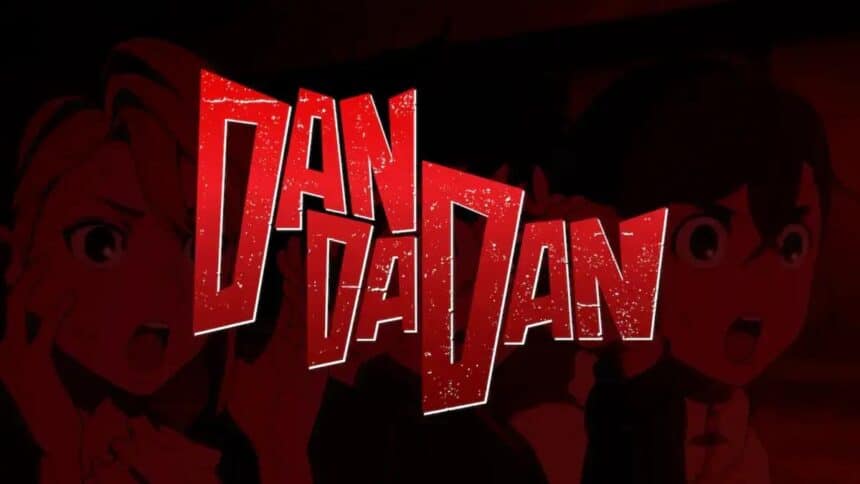The removal of the song ‘Hunting Soul’ from Japanese streaming services has raised significant concerns among fans of the anime DAN DA DAN. The song’s absence impacts viewer engagement as it played a key role in the storytelling. Music rights issues and copyright concerns are central to this situation, leading to discussions on the importance of respecting artists’ rights. Fans have expressed their frustrations online, emphasizing their emotional connection to the song. As the anime’s future unfolds, these challenges highlight the delicate balance between music licensing and fan experiences.
DAN DA DAN continues to make headlines as its popular song ‘Hunting Soul’ faces unexpected removal from Japanese streaming services. What led to this situation? Let’s delve into the details.
Background of the anime _DAN DA DAN_ and the song ‘Hunting Soul’
The anime DAN DA DAN has captured the hearts of many fans around the world. It blends exciting action with intriguing storylines. Set in a world where supernatural elements meet everyday life, it keeps viewers on the edge of their seats.
One standout feature of the series is its soundtrack. The song ‘Hunting Soul’ plays a vital role in creating the anime’s atmosphere. With its catchy melody and powerful lyrics, it enhances key moments and drives the story forward.
The song’s energy reflects the themes of adventure and determination that DAN DA DAN embodies. Fans often find themselves humming its tune long after watching the episodes. It resonates with their experiences and emotions.
Moreover, the music connects deeply with the characters’ journeys. Each note amplifies the tension and excitement, making scenes even more memorable. The creators chose this song to elevate the overall experience, and it clearly paid off.
As the anime airs, the song’s popularity grows. Listeners appreciate how it blends with the show’s vibrant visuals and compelling narrative. Whether it’s a battle scene or a heartfelt moment, ‘Hunting Soul’ adds a special touch.
Reasons for removal from Japanese streaming services
The removal of ‘Hunting Soul’ from Japanese streaming services has raised many questions. Several reasons led to this unexpected decision.
First, there were copyright concerns. The creators of DAN DA DAN wanted to ensure that all music used is properly licensed. When issues popped up, the song had to be pulled.
Second, the song’s distribution rights came into question. Keeping ‘Hunting Soul’ on platforms without clear rights could lead to legal trouble. This action was taken to protect both the song and the anime.
Next, platforms may have removed the song to comply with new regulations. Changes in copyright laws in Japan affect how content is shared and accessed. The industry is constantly adapting to these shifts.
Fans, however, have expressed their disappointment. Many enjoyed listening to the song while watching the anime. Its removal has sparked conversations about how important music is to a show’s experience.
Communities are also discussing the importance of supporting artists and creators. Copyright laws protect the hard work behind every anime and song. They ensure that everyone involved gets the credit they deserve.
Concerns raised by X JAPAN’s YOSHIKI regarding copyright
YOSHIKI, the famous musician from X JAPAN, has voiced serious concerns about copyright issues. His worries center around how music rights are handled in the anime industry.
He believes that artists deserve fair treatment for their work. Music is a vital part of anime, and it should be respected. Without proper rights, the entire industry might face big problems.
YOSHIKI has pointed out that copyright infringement affects everyone. It can hurt creators like him and impact the fans who love their music. When songs are taken down, it takes away from the experience of watching the anime.
In his view, it’s crucial to raise awareness about these issues. Many fans may not understand the importance of copyright laws. They protect the rights of musicians and ensure they get paid for their work.
Additionally, YOSHIKI encourages collaboration between creators and platforms. Open discussions about music rights can lead to better solutions for everyone involved. He believes that respecting and understanding these rights can help artists thrive in the future.
His concerns highlight a larger issue in the industry. Ensuring that everyone’s rights are protected is essential for the growth of anime and its music. Fans and creators alike need to be on the same page.
Current availability of ‘Hunting Soul’ and fan reactions
The song ‘Hunting Soul’ has become a topic of great interest among fans. Currently, the song is not available on Japanese streaming services. This sudden absence has left many fans feeling disappointed and confused.
Before its removal, ‘Hunting Soul’ enjoyed a warm reception. Fans appreciated its catchy tune and emotional lyrics. It perfectly matched the intense moments in the anime DAN DA DAN.
Since the removal, fans have taken to social media to express their feelings. Many are voicing their frustration and calling for its return. Some even share links to unofficial versions of the song as a way to keep it alive.
Online communities have come together to discuss possible reasons for the song’s absence. While some suggest copyright issues, others just want answers about its future availability.
Despite the current situation, the love for ‘Hunting Soul’ remains strong. Fans continue to share their favorite moments from the anime that feature the song. This shows how important music is to their viewing experience.
In summary, while ‘Hunting Soul’ is currently unavailable on official platforms, the passion of fans keeps the song alive through conversations and shared memories.
Implications for the anime and its future
The recent removal of ‘Hunting Soul’ brings several implications for DAN DA DAN and its future. This situation raises questions about how musical choices affect the overall experience of the anime.
First, fans might feel less connected without the song. ‘Hunting Soul’ was not just background music; it played a crucial role in storytelling. Its absence could change how viewers engage with the show.
Next, the removal signals potential difficulties for future releases. If copyright issues linger, producers may hesitate to include popular songs. This could limit audiences’ enjoyment of the anime.
The discussions around copyright also spotlight the need for clearer agreements. As popular music integrates with anime, creators must ensure that rights are respected. This process can help prevent similar situations from happening again.
Moreover, DAN DA DAN might need to explore alternative music options. New soundtracks can refresh the viewing experience but may not please every fan. It’s a balancing act to retain the original vibe.
In the long run, how DAN DA DAN handles these challenges may influence its reputation. Good decisions can strengthen the relationship between creators, artists, and fans, ensuring a bright future for the anime.







